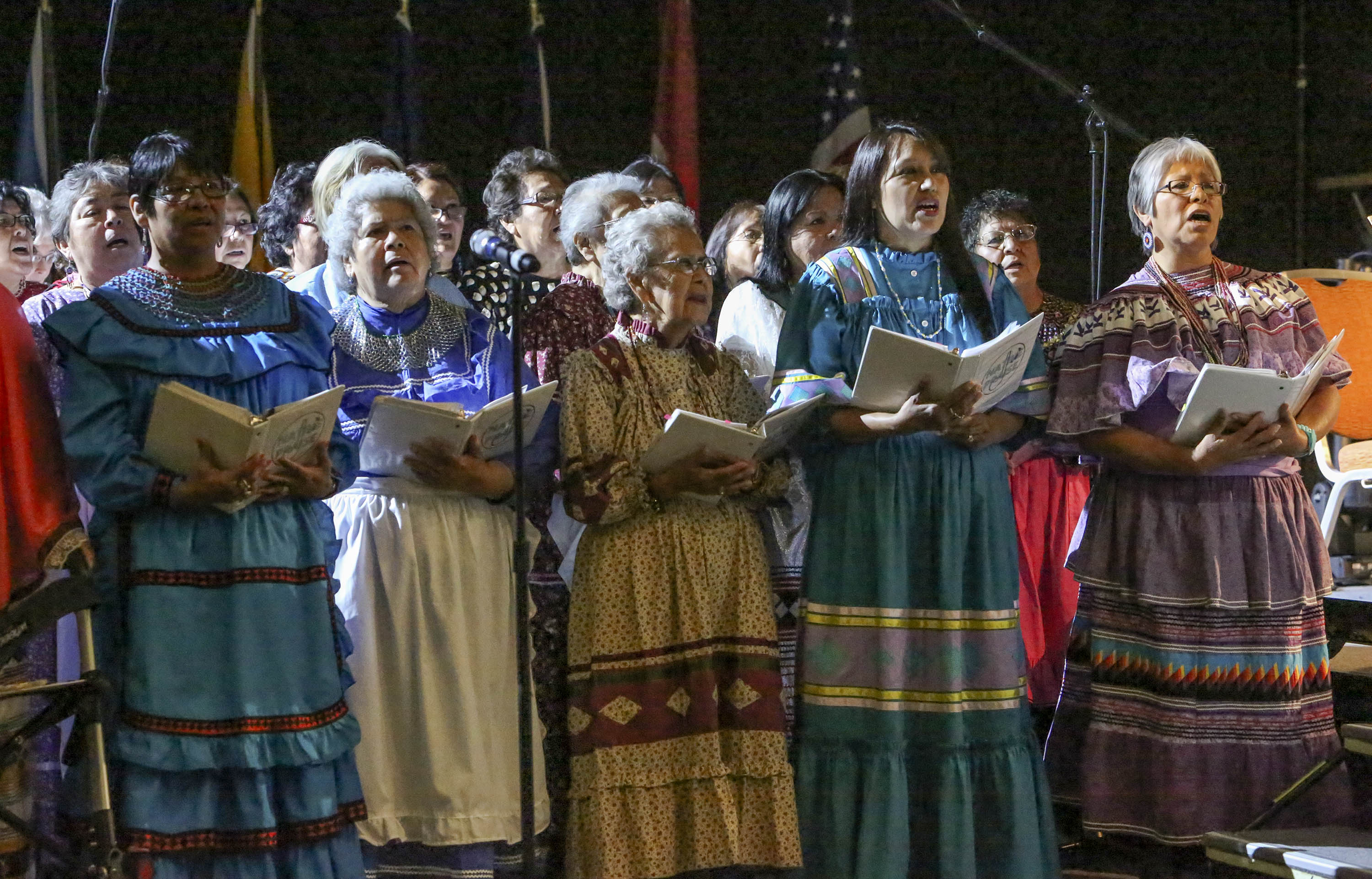
BALTIMORE (BP) — At least three-quarters of the Native Americans in the United States live in urban areas, but nearly all Native American outreach takes place on reservation lands far from cities.
The Fellowship of Native American Christians (FONAC) discussed a strategy to address the inequity at their June 9 meeting in conjunction with the Southern Baptist Convention annual meeting in Baltimore.
FONAC, birthed by Native Americans in 2008, hired Gary Hawkins as its executive director and sole employee in 2013.
More partners are needed to help FONAC reach into the cities with the 10 largest Native American populations — to start churches and establish ministries to draw Native Americans closer to God and His Kingdom, Hawkins said.
“We must do things contextually and low-cost,” Hawkins said in his report to the approximately 50 annual meeting attendees. The strategy is to find Native Americans, then equip and empower them to reach others. “We want to help indigenous people to be equipped in such a way that they are not reliant on outside groups.”
FONAC chairman Emerson Falls, who also is Native American specialist with the Baptist General Convention of Oklahoma, explained the organization’s strategy.
“We’re going to be intentional about reaching Native Americans in urban areas in a way that’s not been done before,” Falls said. “New York City has 100,000 Native Americans and no Native American church. Does that make sense? Long Beach, Calif., has 70,000 and Denver has 42,000 Native Americans.”
FONAC wants to “find areas of greatest need and start there,” Falls said. “It’s a New Testament strategy: Raise up leaders, train them, equip them, empower them and let them reproduce.”
Despite the fact that Anglos have been ministering among Native Americans for 400 years, only 10 percent of the Native population in the United States today are Christians, Falls said.
“We’ve not been reproducing Christians, reproducing churches,” Falls said. “We’ve got to build on missional principles, rather than try to do what’s worked someplace else.”
Native Americans living in urban areas combine their cultural heritage with big-city mindsets, adding a layer of challenge to reaching them with the Gospel message, Falls added.
Partners are needed — churches, clusters of churches, associations and state conventions — to help establish Native American churches, Falls and Hawkins said.
“We don’t want to go in and do crusades,” Falls said. “We want to empower Native Americans to do them for themselves. We anticipate partner churches will stay with [the new Native American churches] until they have a church with their own resources.” A church doesn’t need a building to be a church, Falls noted.
Vision trips to 10 key cities are in the planning stages: New York, Phoenix, Los Angeles, Albuquerque, Anchorage, Tulsa, Oklahoma City, Houston, Tucson and Chicago.
“FONAC seems to have the best handle on reaching Native Americans,” Alan Dial, Alaska Native church planter catalyst for the Alaska Baptist Convention, said. “We want to partner with them.”
Supporting partners are asked to contribute $200 a year to help FONAC begin work among Native Americans in the 10 cities. Primary partners can adopt a specific area and assist a mission point in becoming a healthy, reproducing church.
“Reaching Native Americans is impossible for man, but with God, nothing is impossible,” Falls said. “We need to pray for spiritual awakening. … Every great movement of God started with prayer.”
About 400 Southern Baptist churches are predominantly Native American, and 200 of those are in Oklahoma, Ken Weathersby, the SBC Executive Committee’s vice president for convention advancement, told FONAC. Three Native Americans are on EC President Frank S. Page’s Multi-Ethnic Advisory Council.
Worship at FONAC’s annual meeting was led by Native Praise, a group of women representing 15 tribes and 23 churches.
–30–
Karen L. Willoughby is a national correspondent for Baptist Press, the Southern Baptist Convention’s news service. BP reports on missions, ministry and witness advanced through the Cooperative Program and on news related to Southern Baptists’ concerns nationally and globally. Get Baptist Press headlines and breaking news on Twitter (@BaptistPress), Facebook (Facebook.com/BaptistPress) and in your email (baptistpress.com/SubscribeBP.asp).














